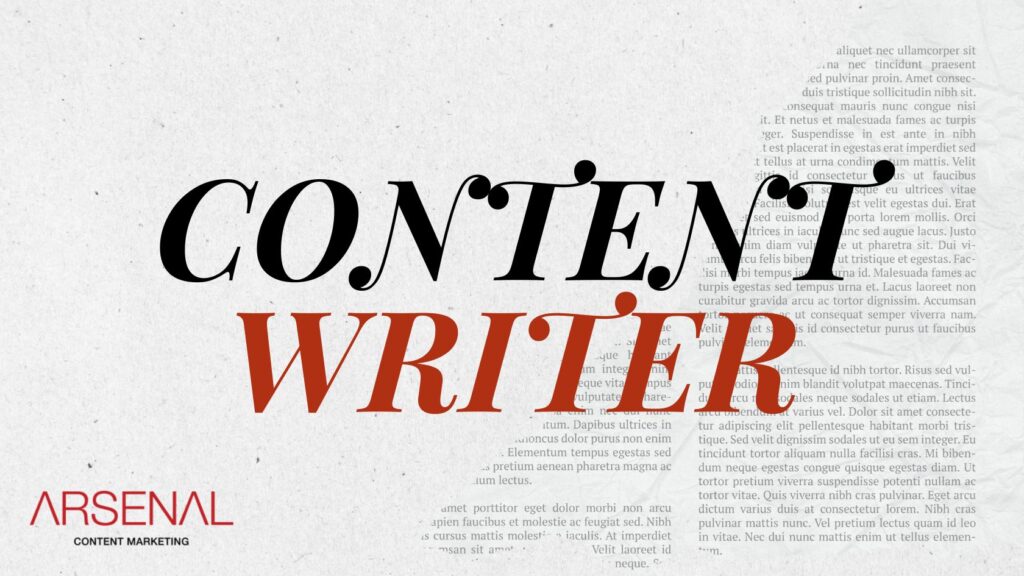In the world of digital marketing, both content writing and copywriting play crucial roles. But what’s the difference between the two? While both utilize words to engage an audience, their goals and applications differ significantly. Understanding these distinctions is vital for businesses seeking to create a robust online presence.
A common misconception is that copywriting and content writing are the same – we often see it in job posts, where job descriptions are usually confused with the other, and sometimes even coincide.
Let’s get to the bottom of it:
What is the difference between copywriting and content writing?
Can these two types of writing be executed by one, and the same person?
The answer is yes, but it’s important to note the difference and the expertise required for both roles to develop a well-executed output.
Content Writing vs. Copywriting: Key Differences
Purpose: Content writing aims to educate, inform, and entertain the audience, establishing brand authority and trust. Copywriting focuses on persuasion, driving specific actions like purchases or sign-ups.
Content-Length: Content writing often leans towards long-form pieces like articles, blog posts, and white papers. Copywriting tends to be more concise, encompassing product descriptions, social media captions, and ad copy.
SEO Focus: Content writing heavily incorporates Search Engine Optimization (SEO) practices to improve organic traffic. Copywriting prioritizes clear, compelling language that resonates with the target audience.
While advancements in Artificial Intelligence (AI) offer exciting possibilities for content creation, the human touch remains irreplaceable. AI can serve as a valuable tool to augment the writer’s process, assisting with research and content ideation, but it cannot replicate the strategic thinking, creative spark, and nuanced voice that skilled human writers bring to the table.

COPYWRITER
By definition, a copywriter is a professional who specializes in creating persuasive and compelling written content, primarily for marketing and advertising purposes, with a goal to drive action and influence the audience to take specific actions, such as making a purchase or subscribing to a service.
Some examples of Copywriting that we commonly come across are:
- Social media ads
- Product landing pages
- Website sales copy
- Sales emails
- SMS ads/copy
- Product descriptions
- Branding Copy
- Billboard/Flyer copy

CONTENT WRITER
On the other hand, a content writer is focused on producing informative, valuable, and engaging content for various platforms, including blogs, websites, and social media. They aim to educate and entertain the audience while establishing the authority and credibility of the brand or individual.
Some examples of Content Writing are more long-form, like:
- Articles (listicles, PR articles, newspaper articles, features, reviews, SEO)
- Scriptwriting
- White Papers
- Social Media content (copy and caption writing)

The Synergy Between Content and Copy
While distinct, content writing and copywriting can work together harmoniously.
Informative blog content can nurture leads, while strategically placed calls to action (CTAs) within the content can drive conversions.
In summary, while copywriters and content writers work with words, copywriters focus on promotional and persuasive content, while content writers concentrate on delivering valuable and informative material.
By understanding the unique strengths of content writing and copywriting, businesses can craft a well-rounded digital marketing strategy. Content builds trust and brand awareness, while copywriting compels action and drives conversions. Both play a vital role in achieving online success. Arsenal Content Marketing is your strategic partner in doing both.
For your brand’s content writing, content creation needs, or copywriting requirements, send us a message at info@arsenalcontent.com.

